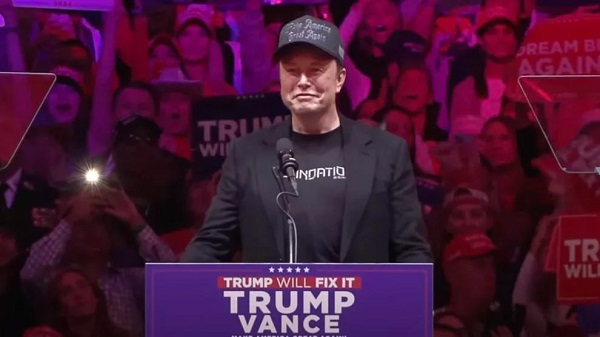From The Center Square
President-elect Donald Trump’s new Department of Government Efficiency is seeking “super high-IQ” people to work more than 80 hours a week for free.
DOGE co-leader Elon Musk, who is the CEO of Tesla and is one of the richest people in the world, is working with entrepreneur Vivek Ramaswamy to find top talent to cut wasteful spending, overburdensome regulations and re-structure federal agencies. Neither Musk or Ramaswamy will be paid for their work.
“We are very grateful to the thousands of Americans who have expressed interest in helping us at DOGE,” the new advisery group said in a social media post. “We don’t need more part-time idea generators. We need super high-IQ small-government revolutionaries willing to work 80+ hours per week on unglamorous cost-cutting.”
Candidates can send their resumes to the DOGE account on X.
“Elon & Vivek will review the top 1% of applicants,” according to the post.
In a separate post, Musk said the work will be challenging and won’t be paid.
“Indeed, this will be tedious work, make lots of enemies & compensation is zero,” Musk wrote.
The department’s acronym, DOGE, is a nod to Musk’s favorite cryptocurrency, dogecoin. Trump said the new group will pave the way for his administration to “dismantle government bureaucracy, slash excess regulation, cut wasteful expenditures and restructure federal agencies.”
Trump laid out lofty goals for DOGE in his announcement this week.
“It will become, potentially, ‘The Manhatten Project,’ of our time,” Trump’s announcement said. “Republican politicians have dreamed about the objectives of ‘DOGE’ for a very long time.”
Maya MacGuineas, president of the Committee for a Responsible Federal Budget, said the group welcomes DOGE to the challenge.
“Given our cumbersome bureaucracy and large fiscal imbalances, the effort is long overdue,” she said. “Regardless of political views, we should all want the federal government to spend scarce dollars wisely.”
MacGuineas said the outside group’s work could help restore trust in the government.
“An aggressive effort to reduce waste, fraud, abuse, and inefficiencies could save billions or even trillions of dollars over a decade and could help improve the public’s faith in government,” she said.
MacGuineas urged DOGE to look at the full budget.
“Such an effort should look at all parts of the budget, especially in the areas of health care, national defense, and spending through the tax code, and it should look beyond just cutting fraud and reducing bureaucracy to also identify places where the taxpayer is not getting the best value for their dollar,” she said. “Federal health care spending, in particular, is rife with overpayments and inefficiencies that offer the opportunity to substantially lower costs without meaningfully reducing quality or access to care.”
Social Security and federal health care programs, specifically Medicare, deserve special attention, MacGuineas said.
Since fiscal year 2003, improper payment estimates by executive branch agencies have totaled about $2.7 trillion, including $236 billion for fiscal year 2023. Improper payments have declined in recent years, but remain a stubborn challenge for many federal agencies. Improper payments are payments that shouldn’t have been made or were made in the wrong amount.
Most of the improper payments come from five federal programs: Medicare, comprising three programs ($51 billion); Medicaid ($50 billion); the Department of Labor’s Unemployment Insurance – Federal Pandemic Unemployment Assistance ($44 billion); the Department of the Treasury’s Earned Income Tax Credit ($22 billion); the Small Business Administration’s (SBA) Paycheck Protection Program Loan Forgiveness ($19 billion).
MacGuineas said DOGE should take a bipartisan outlook.
“Importantly, the process will need to be as bipartisan as possible in order to help with the deliverability and implementation of ideas,” she said. “The recommendations will need Congressional buy-in, further emphasizing the need for this to be an effort reaching across the aisle and leaving all options on the table to address our fiscal imbalances.”
Congress has run a deficit every year since 2001. In the past 50 years, the federal government has ended with a fiscal year-end budget surplus four times, most recently in 2001.
DOGE also plans to go after fraud at the federal level. The Government Accountability Office, which serves as the research arm of Congress, estimated fraud losses cost taxpayers between $233 billion and $521 billion annually, in a report in April. The fraud estimate’s range represents 3% to 7% of average federal obligations.


















